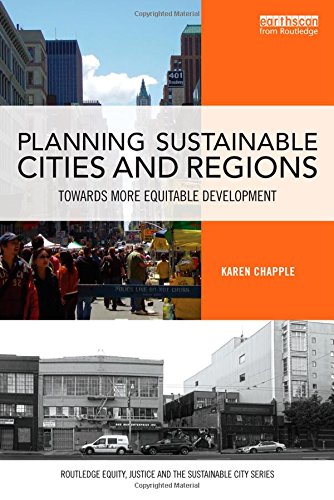

Most ebook files are in PDF format, so you can easily read them using various software such as Foxit Reader or directly on the Google Chrome browser.
Some ebook files are released by publishers in other formats such as .awz, .mobi, .epub, .fb2, etc. You may need to install specific software to read these formats on mobile/PC, such as Calibre.
Please read the tutorial at this link. https://ebooknice.com/page/post?id=faq
We offer FREE conversion to the popular formats you request; however, this may take some time. Therefore, right after payment, please email us, and we will try to provide the service as quickly as possible.
For some exceptional file formats or broken links (if any), please refrain from opening any disputes. Instead, email us first, and we will try to assist within a maximum of 6 hours.
EbookNice Team

Status:
Available5.0
14 reviewsAs global warming advances, regions around the world are engaging in revolutionary sustainability planning - but with social equity as an afterthought. California is at the cutting edge of this movement, not only because its regulations actively reduce greenhouse gas emissions, but also because its pioneering environmental regulation, market innovation, and Left Coast politics show how to blend the "three Es" of sustainability--environment, economy, and equity. Planning Sustainable Cities and Regions is the first book to explain what this grand experiment tells us about the most just path moving forward for cities and regions across the globe.
The book offers chapters about neighbourhoods, the economy, and poverty, using stories from practice to help solve puzzles posed by academic research. Based on the most recent demographic and economic trends, it overturns conventional ideas about how to build more livable places and vibrant economies that offer opportunity to all. This thought-provoking book provides a framework to deal with the new inequities created by the movement for more livable - and expensive - cities, so that our best plans for sustainability are promoting more equitable development as well.
This book will appeal to students of urban studies, urban planning and sustainability as well as policymakers, planning practitioners, and sustainability advocates around the world.